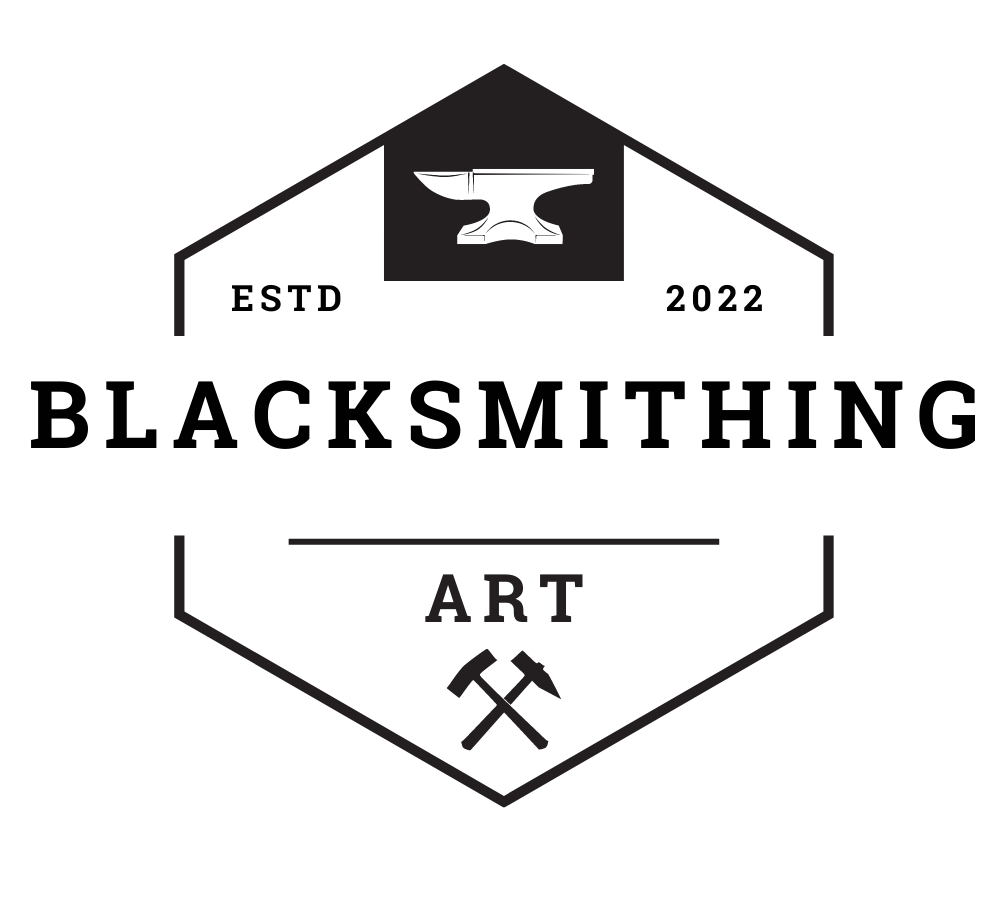Damascus steel VS Stainless steel? There are several factors to take into account when purchasing a high-quality kitchen knife. However, one of the most crucial elements is the kind of steel used to make the knife. This article highlights the distinctions and similarities between Damascus steel and stainless steel.
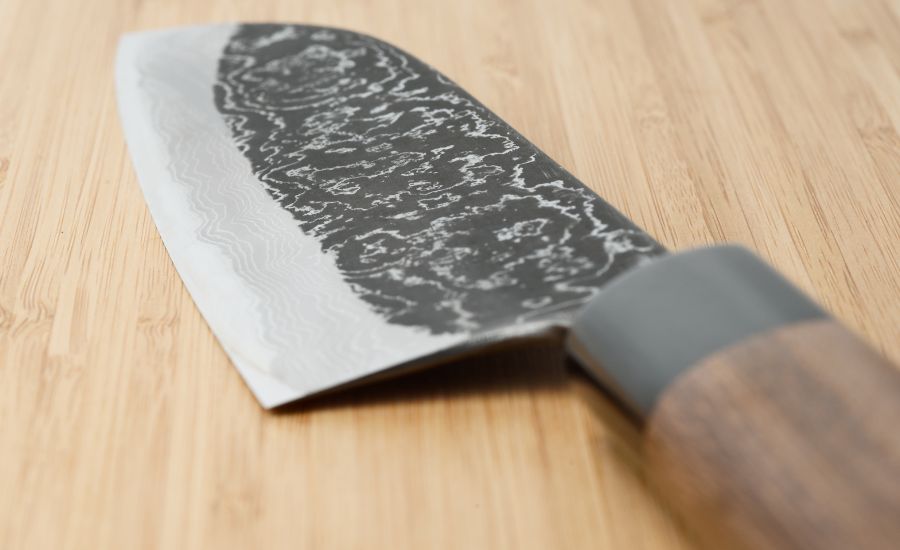
Contents
Damascus steel
One feature that distinguishes Damascus steel from other kinds of steel is the wavy pattern that runs throughout the body of a Damascus blade. Initially, it was produced solely in Damascus from a metal called Wootz steel.
It was renowned for its ability to slice through extremely tough materials.
It was frequently asserted that a sword crafted of this Wootz steel could slash through inferior blades and possibly solid rock. A Damascus sword increased your chances of surviving an encounter with an opponent. This is a result of its exceptional durability and precise cutting edge.
So, it makes sense that they would adopt this sophisticated knife-making method from antiquity in forging modern Damascus steel.
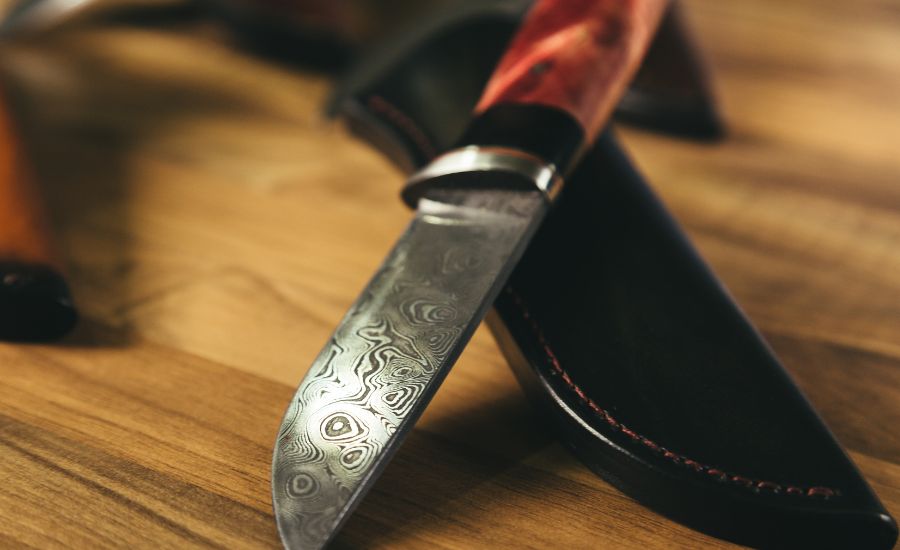
Features
Greater impact and dynamic resistance.
Modern Damascus steel knives can handle tougher cutting tasks without the risk of blade fracturing.
However, the steel’s quality also plays a role in this, as there is subpar Damascus steel that is available for purchase.
But, when all other factors are equal, the strength from the two stainless-steel grades combined, provides enhanced toughness when cutting stronger materials.
Incredible style.
A Damascus steel knife has an incredibly beautiful pattern on the surface of the blade. Its striking patterns of banding and mottling are suggestive of water flow. These patterns have a watery appearance created during the manufacturing process.
Each Damascus steel blade has unique designs created during the forging process.
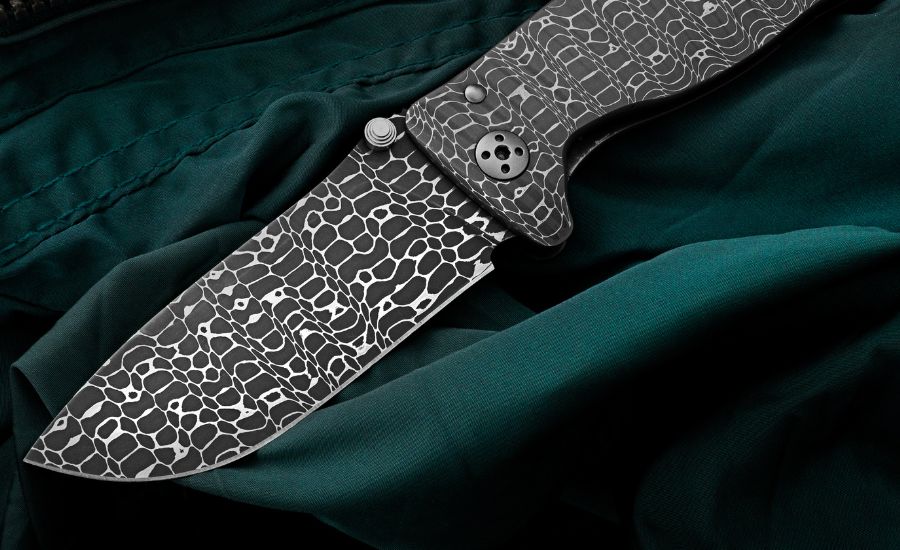
Hardness.
Good Damascus steels have a hardness that falls between 52 and 60 on the Rockwell scale, which still isn’t as hard as some high-carbon steel.
Exceptional sharpness.
Damascus steel blades have a sharper edge.
Damascus knives may be conveniently sharpened when needed, in addition to their edge retention.
Nevertheless, you don’t necessarily need to frequently sharpen Damascus blades.

Stainless steel
Many people have the misconception that stainless steel is just one type of material. Instead, it consists of a variety of corrosion stainless steel types that are additionally resistant to harm from high temperatures, watermarks, and other acidic factors.
A stainless steel knife is fundamentally made of minor amounts of iron and metal alloy. Most of the time, it also includes trace carbon in its makeup. Steel is more durable than regular iron.
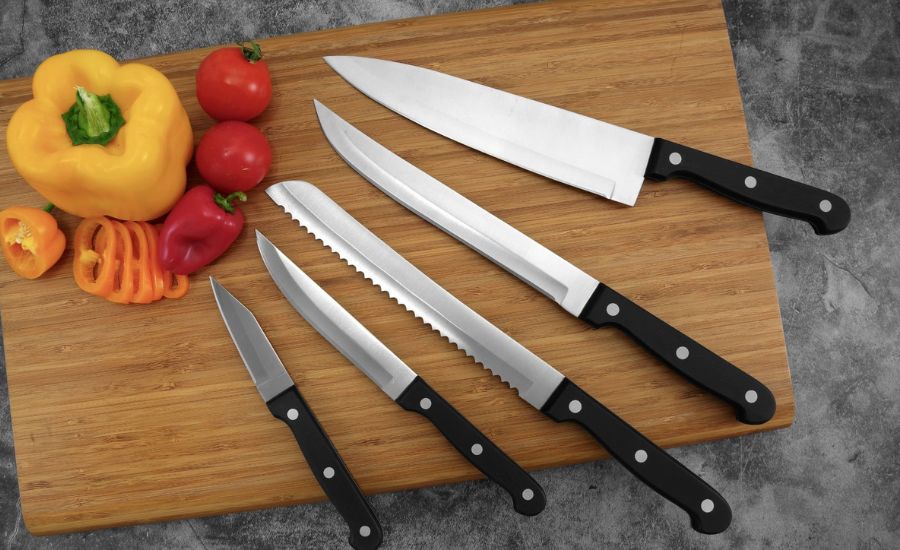
Features
Corrosion resistance
Chromium makes up at least 10.5% of stainless steel. Its inherent corrosion resistance is due to this. Natural oxygen comes into touch with the chromium that is contained in stainless steel.
Chromium oxide, which is also added as a steel-protecting agent, is created by the reaction.
This additional layer of oxygen will protect the metal in case it sustains damage or dents. Stainless steel knives can withstand heat because it contains copper and nickel in some varieties.
Multi-purpose
Stainless steel knives are also incredibly adaptable. This is mostly because they are strong, corrosion-resistant, and need little care. Due to these reasons, you want to employ stainless steel knives to create a variety of things, including kitchenware, and camping knives.
Availability
The availability of stock should be one of your considerations before making a purchase. Stainless steel knives are more commonly accessible in this aspect. Because of their simplicity of bulk production, there is more inventory available.
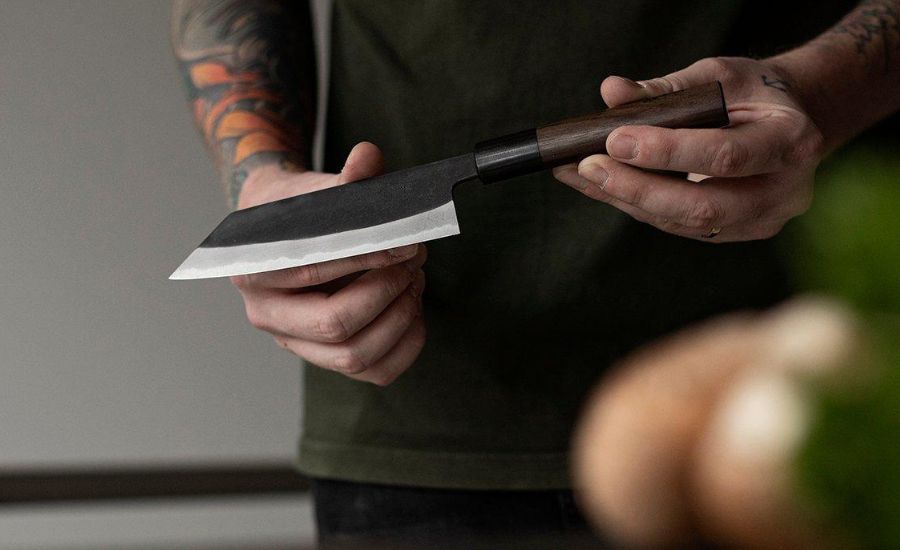
Damascus steel vs stainless steel applications
Wherever you look, stainless steel is used. It can be found in many different kitchen utensils, and also in different places like building sites.
It’s a material with a lot of versatility, there’s no disputing that.
Damascus steel, however, is an exception. Knives are the sole product that it is ever utilized to make.
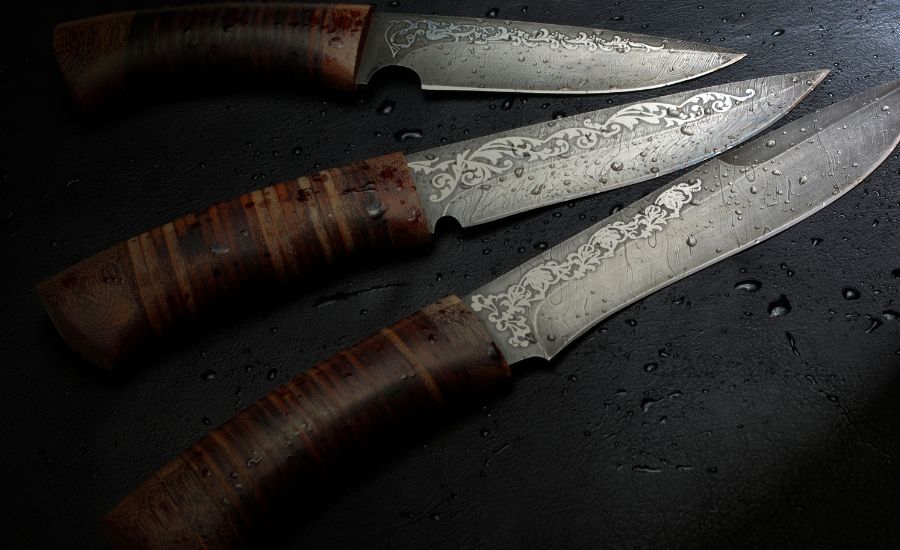
FAQ
Is Damascus steel more durable than stainless steel?
Yes, it is. Comparing the durability of Damascus steel vs stainless steel, both materials are decent. A stainless steel knife won’t shatter or split when dropped, and they require less maintenance compared to Damascus knives.
Damascus steel gains its strength from carbon. The high carbon content steel core enables better edge retention, and the softer stainless steel increase reliability and lower breaking risk. A blade that combines the two can be both powerful and long-lasting.
Damascus knives are significantly more durable than stainless steel knives. Meanwhile, Damascus knives need a lot more upkeep and are vulnerable to corrosion if not properly maintained.
Is Damascus steel actually better?
Yes. Damascus steel is better. It is a highly durable steel that works well for making blades and other equipment.
What steel is better than Damascus?
It is carbon steel. It is much more versatile and less susceptible to breaking than Damascus steel. Furthermore, it has more corrosion resistance. Meanwhile, because carbon steel knives must be frequently cleansed and lubricated to avoid corrosion, they demand additional maintenance than Damascus steel knives.
The primary distinction between Damascus steel and carbon steel lies in the quantity of carbon.
Is Damascus steel stronger than steel?
Yes, it is. It is created by folding and joining several layers of steel. Because of this, steel is more efficient and long-lasting than conventional steel.
Conclusion
Both Damascus steel and stainless kitchen knives have distinct qualities. What you want in a knife is what matters most in the end.
